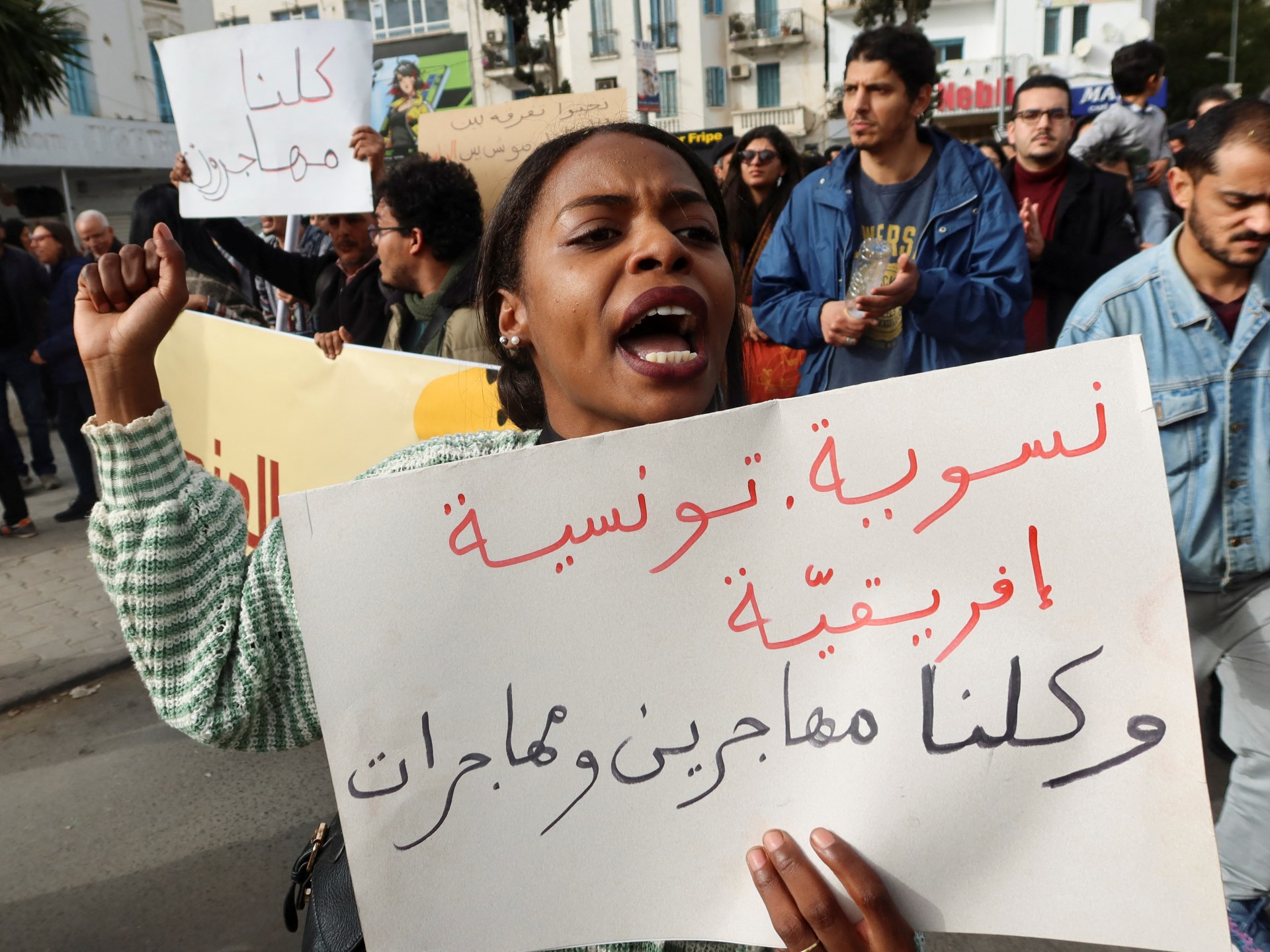Washington expressed concern about the situation of African immigrants in Tunisia, and the United Nations referred to what it called the "increasing state of repression" to which they are subjected, while Tunisia denied any allegations of pursuing a racist policy towards immigrants on its territory.
US State Department spokesman Ned Price expressed his country's concern about Tunisian President Kais Saied's statements regarding African immigrants and the arrest campaigns that targeted them in the past weeks.
In a press conference in Washington, Price called on the Tunisian authorities to coordinate with international organizations regarding the safe and voluntary return of migrants who wish to return to their countries.
For his part, Stephane Dujarric, spokesman for the Secretary-General of the United Nations, expressed the international organization's concern about what he described as the increasing crackdown on migrants in Tunisia.
Dujarric stressed that the United Nations condemns racism and hate speech against foreigners.
A speech delivered by Tunisian President Kais Saied a week ago at the National Security Council - through which he called for tightening restrictions on the flow of migrants - caused a diplomatic crisis with a number of sub-Saharan African countries, along with accusations from human rights organizations and the African Union Organization of the authority in Tunisia of broadcasting hate speech.
The Tunisian Forum for Economic and Social Rights said that the police then arrested hundreds of immigrants, while the owners of real estate expelled hundreds from their homes without observing the customary procedures, and laid off hundreds of others from work.
Tunisian exile
Tunisia denied any allegations of a racist policy towards immigrants on its territory.
Tunisian Foreign Minister Nabil Ammar accused internal and external parties, which he refused to name, of fabricating and fueling what he described as a campaign targeting his country.
He said that the Tunisian authorities have taken measures to support migrants legally on their territory and are working to protect them.
Last Sunday, the Tunisian president denounced racism and pointed out the legal consequences for those who attack migrants.
In a parallel context, the World Bank suspended the launch of the strategy for Tunisia, and the bank's president, David Malpass, said that the bank had suspended its work with Tunisia after President Kais Saied's statements regarding migrants.
In a note addressed to his employees, he said that the bank had temporarily suspended the partnership framework with World Bank in Tunisia, and had postponed its board meeting, which was scheduled for later in March, until further notice.
Malpass said that the World Bank sees what the Tunisian government announced to protect and support migrants and refugees as a positive step and will monitor its impact.

